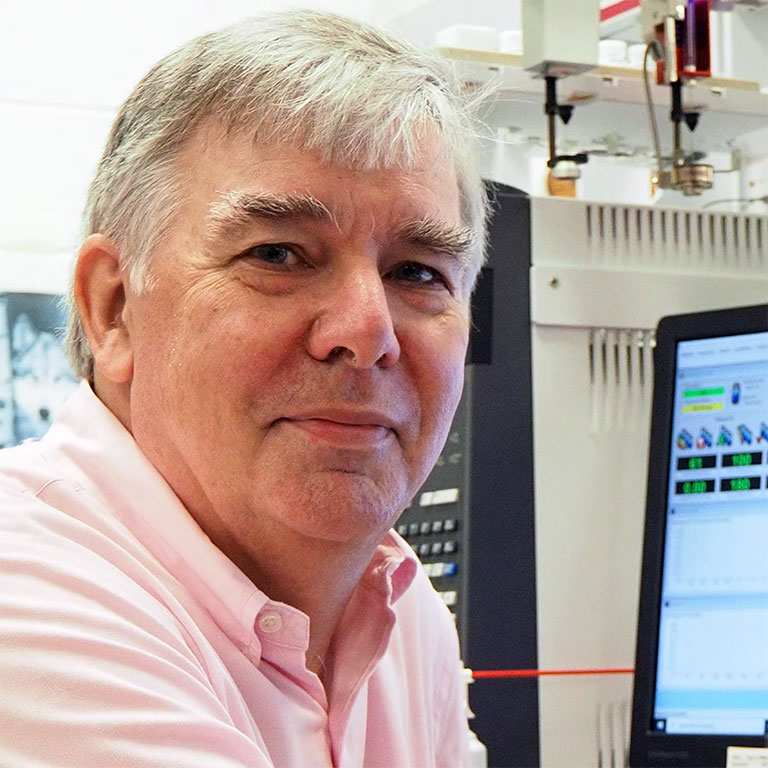- Ph.D., Organic Geochemistry, University of Bristol, U.K., 1980
- B.Sc., Chemistry and Geology, University of Bristol, U.K., 1976

Simon C. Brassell
Professor, Earth and Atmospheric Sciences
Fellow, the American Geophysical Union

Professor, Earth and Atmospheric Sciences
Fellow, the American Geophysical Union
Determination, assessment, and interpretation of molecular and isotopic characteristics of organic matter to identify biogeochemical signatures of life of Earth and processes associated with how organisms shape the fate and cycling of carbon in modern and ancient natural systems.
Brassell’s work on the organics of desiccated lake systems are relevant to the interpretation of organic compounds as evidence for past life on other planets.
Activities are focused on the exploration and application of geochemical biomarkers and their isotopic signatures as environmental, paleoclimatic, and stratigraphic tools to better understand:
E131: Oceans and Our Global Environment. An introductory online course for non-science majors incorporating exercises utilizing web-based resources of oceanic data in an interdisciplinary exploration of controls on physical, chemical, and biological oceanographic processes with an emphasis on the climatic and environmental importance of Earth’s oceans.
C105: Records of Global Climate Change. An introductory science course that examines evidence for climate change in Earth’s past, explores present-day climate trends, and assesses predictions of future change and its consequences for society and the environment.
E488: Paleoclimatology: The Geological Record of Earth’s Climate History. An examination of Earth’s climate over geological time that explores approaches to reconstructing past climates from the evidence of sediment records and fossil occurrences, complemented by geochemical data, and building connections between life on Earth, extinction events, and drivers for climate change.
G587 Organic Geochemistry: A comprehensive exploration of measurement and applications of molecular and isotopic characteristics of organic matter focused on principles and processes, coupled with topical readings from recent literature.
G588: Paleoclimatology: The Geological Record of Earth’s Climate History. A graduate-level exploration of Earth’s climate over geological time co-taught with E488.
Recent topics for G690 Graduate seminars in aspects of biogeochemistry have included: Organic Geochemical Stratigraphy, Petroleum Geochemistry, Paleoclimatology, and Organic Chemistry for Earth Scientists.
Projects representative of opportunities for research, including collaborative activities, which are, or have been, supported by the National Science Foundation (NSF), the US Science Support Program (USSSP) for the International Ocean Drilling Program (IODP), the Department of Energy (DOE), and other funding agencies:
Roles on major committees within the Department and University, and aspects of professional service: